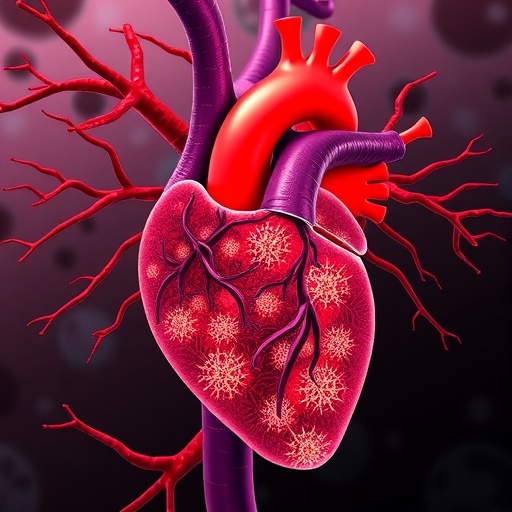
Recent advancements in the field of brain-computer interfaces (BCIs) have garnered significant attention, particularly in the medical domain. A notable study by Liu, Wang, and Liu highlights the transformative applications of electroencephalography (EEG)-based BCIs, which facilitate direct communication between the brain and external devices. This groundbreaking technology is not just a scientific curiosity; it offers tangible solutions to pressing medical challenges faced by individuals with severe disabilities. By harnessing the brain’s electrical activity, this innovative approach promises to revolutionize how medical professionals monitor, diagnose, and even treat various conditions.
The potential of EEG-based BCIs lies primarily in their ability to read brain signals and translate them into actionable responses. For patients with mobility impairments or neurological disorders, this technology can provide a voice and a pathway to interact with the world. Imagine a person who is paralyzed due to a spinal cord injury being able to control a computer cursor simply by thinking about the movements they wish to make. This remarkable capability opens doors to enhanced independence and improved quality of life for many individuals who might otherwise feel trapped in their own bodies.
One of the most profound applications of EEG-based BCIs is in the realm of rehabilitation for stroke survivors. Traditional rehabilitation methods often rely on physical movements that can be challenging for patients. However, by employing BCIs, therapists can create a bridge for these patients to engage in therapeutic activities without relying solely on physical movement. Neurofeedback training can encourage neural pathways to rewire, potentially accelerating recovery and improving outcomes for stroke patients.
Moreover, the integration of BCIs in mental health treatments is gaining traction. Disorders such as depression and anxiety can alter brain wave patterns, and researchers are exploring ways to utilize EEG data for real-time feedback and intervention. With BCIs, patients might receive tailored therapy that adapts to their current brain state, allowing for a more personalized approach to mental health treatment. This shift from generalized treatment to individualized care has the potential to yield better therapeutic results.
In the realm of neuromarketing, EEG-based BCIs are also making inroads. Companies are leveraging brain signal data to determine consumer affinity toward products, advertisements, and brands. By decoding emotional responses, marketers can fine-tune their strategies to align with what truly resonates with potential customers. This intersection of neuroscience and marketing not only enhances the effectiveness of advertising but also raises ethical questions about consumer manipulation and privacy.
With the increasing complexity of modern life, chronic stress and cognitive overload are becoming ubiquitous. EEG-based BCIs can offer insights into an individual’s mental load and help devise strategies for stress management. Techniques such as mindfulness training can be enhanced through real-time EEG feedback, enabling users to understand when they are at their most stressed and to employ coping mechanisms effectively.
Education is another area ripe for the application of EEG-based BCIs. By providing educators with insights into students’ focus and engagement levels through real-time data, teaching methods can be adapted to improve learning outcomes. Such advancements hold the promise of creating responsive educational environments that cater to diverse learning styles and needs.
Safety and ethical considerations surrounding the implementation of EEG-based BCIs cannot be overlooked. As the technology evolves, concerns about data privacy, consent, and security become paramount. The potential for misuse of sensitive brain data raises profound ethical questions, requiring rigorous regulatory frameworks and guidelines to protect users. Researchers, developers, and policymakers must collaboratively navigate these complexities to foster responsible innovation.
Despite the incredible potential of EEG-based BCIs, technical challenges persist. Signal noise and the need for high precision in interpreting brain signals are hurdles that researchers are striving to overcome. Improved algorithms that enhance the accuracy of EEG data analysis will be crucial for optimizing the performance of BCIs. As technology continues to advance, it is anticipated that these hurdles will be addressed, paving the way for more refined and robust applications.
Furthermore, the societal implications of widespread BCI technology adoption cannot be underestimated. As these systems become more prevalent, the landscape of healthcare, education, and even social interactions may shift dramatically. The empowerment of individuals through technology could lead to significant societal changes, from increased inclusivity for those with disabilities to new approaches in therapy and personal development.
The collaboration between engineers, neuroscientists, and clinicians will be essential to unlock the full potential of EEG-based BCIs. By pooling expertise from multiple disciplines, a more integrated understanding of how the brain functions and how to interact with it through technology will emerge. Such interdisciplinary efforts are expected to accelerate innovation and application in real-world scenarios.
In conclusion, the study by Liu, Wang, and Liu underscores the significant promise that EEG-based brain-computer interfaces hold for the medical field. From rehabilitation to mental health treatments, the implications of this technology are expansive and profoundly impactful. As research continues to unfold, the innovations stemming from EEG-based BCIs could reshape the fabric of medical practice, offering new hope and opportunities for patients worldwide.
The continual evolution of this technology invites a renewed focus on both its practical applications and ethical considerations. Addressing these aspects will be essential in harnessing EEG-based BCIs not only effectively but also responsibly. As we forge ahead into an era where our understanding of the brain and technology converges, we stand on the brink of a new frontier in medicine and human capability.
Subject of Research: EEG-based brain-computer interfaces in the medical field
Article Title: Recent applications of EEG-based brain-computer-interface in the medical field
Article References:
Liu, XY., Wang, WL., Liu, M. et al. Recent applications of EEG-based brain-computer-interface in the medical field.
Military Med Res 12, 14 (2025). https://doi.org/10.1186/s40779-025-00598-z
Image Credits: AI Generated
DOI:
Keywords: EEG, brain-computer interface, medical applications, rehabilitation, mental health, neuromarketing, education, ethical considerations, data privacy, signal processing, interdisciplinary research.
Tags: advancements in medical technologyassistive technology for disabilitiesbrain signal translation technologybrain-computer interface applicationscommunication solutions for paralyzed patientsdirect brain communication methodsEEG-based brain-computer interfaceselectroencephalography in medicineenhancing independence through BCIsimproving quality of life with BCIsNeurological Disorder Treatment Innovationsrehabilitation technologies for stroke recovery




